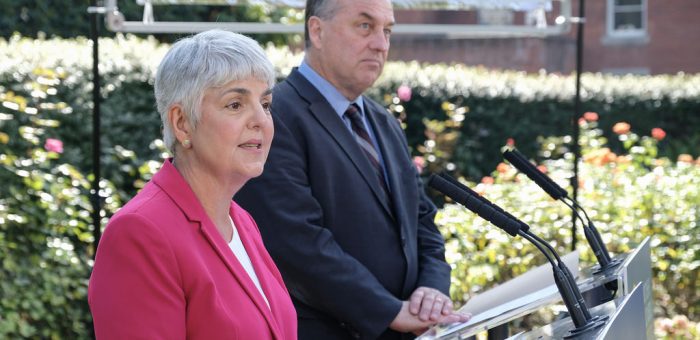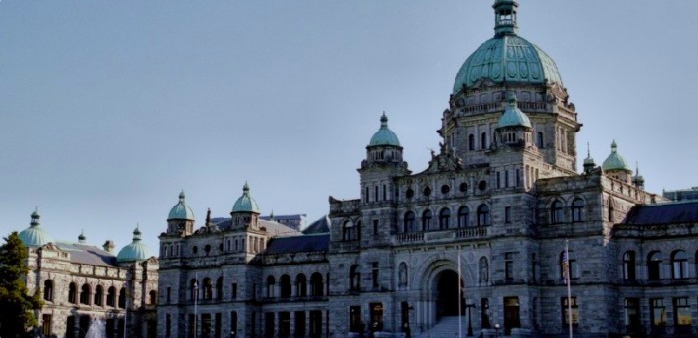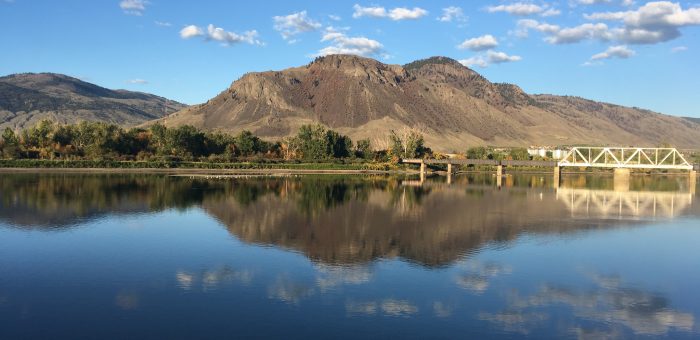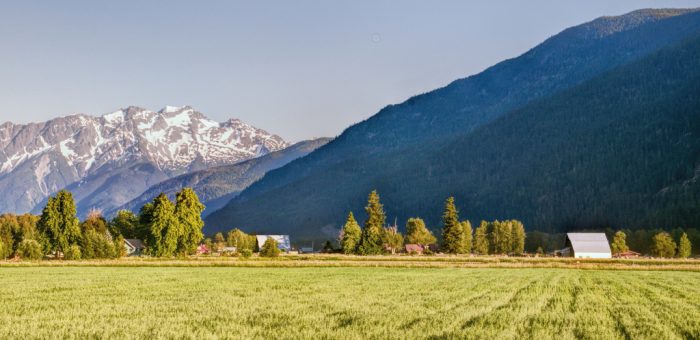Agriculture
How can BC’s environmental organizations be more effective?
I’ve commented before that I’m thrilled with the outcome of the 2024 BC Provincial election that gave the BC NDP a razor thin majority. With 47 seats compared to 44 held by the BC Conservatives and two by the BC Greens, David Eby and the BC NDP have been sent a strong message. British Columbians have rejected ideological-driven activism, empty promises with destructive consequences, and out-of-touch hubris in favour of a more open, decentralized and inclusive approach to governance.
The BC Conservatives came within a hair of forming government and are now considered BC’s government in waiting. British Columbians were unsure what a BC Conservative government would look like and instead gave their numerous rookie MLAs valuable time to gain legislative experience while their nascent party infrastructure is strengthened and their policy platform more carefully constructed. And the electorate have rejected the far left ecosocialist agenda espoused by the now unelected BC Green leader in favour of a back to basics centrist approach.
But where does this leave BC’s environmental organizations? To be blunt, they’ve become largely inconsequential. The BC NDP don’t have to listen to them; the BC Greens will feel betrayed by them; the BC Conservatives feel like they are the enemy. That’s a recipe for irrelevancy, not influence. Please let me explain.
 Many within the environmental community campaigned against the Greens in 2017 out of fear of a BC Liberal majority. The tired “vote splitting” narrative was the central justification for not voting Green. Yet the BC Greens ended up holding the balance of power with 17% of the popular vote and 3 Green MLAs being elected. Our solutions-based message of viewing environmental challenges through the lens of the opportunity they present for innovation resonated with many centrist voters in rural and urban BC.
Many within the environmental community campaigned against the Greens in 2017 out of fear of a BC Liberal majority. The tired “vote splitting” narrative was the central justification for not voting Green. Yet the BC Greens ended up holding the balance of power with 17% of the popular vote and 3 Green MLAs being elected. Our solutions-based message of viewing environmental challenges through the lens of the opportunity they present for innovation resonated with many centrist voters in rural and urban BC.
Post 2017, many environmental organizations decided that the best strategy to advance their agenda would be to pressure the BC Greens in an attempt to influence the BC NDP indirectly. But their approach was ineffective as it was clear that many within the environmental community were perpetually stuck in combat mode. They didn’t seem to know how to:
- Offer pragmatic, constructive solutions;
- Recognize that perfection is the enemy of progress;
- Support decisions and decision makers once a decision has been made that they agree with;
- Work across partisan lines to build relationships and trust;
- Recognize that they are but one stakeholder in any policy discussion/deliberation and a diversity of voices must also be heard.
Organizing for Change, an umbrella organization, was particularly ineffective in this regard. I’ll never forget the day they sent a delegation to the legislature to lobby the BC Greens about minutia that I don’t recall. Yet just a week earlier — in their quest to do what the BC Liberals were unable to — the BC NDP introduced Bill 10, Income Tax Amendment Act 2019 embodying an intergenerational sellout to bring LNG to BC funded through a stunning package of corporate welfare. My two BC Green colleagues and I would have welcomed some external pressure from the environmental community on the BC NDP government. We spent hours speaking against the Act and proposed three amendments (Reasoned, Hoist and Send to Committee) designed to kill the bill. These were all defeated. Deafening silence was all that we heard from BC’s environment organizations.
| 2nd Reading & Reasoned Amendment (1:46:38) | Hoist Motion (43:12) | |
| Motion to Send to Committee (26:19) |
Even worse, the day that Organizing for Change were lobbying us was also the day that Bill 10 came up for debate at committee stage. Nobody in their delegation was even aware that this was happening as my BC Green colleagues and I voted against every section of the bill (including the title). And so, while the environmental activists were quietly watching from the public gallery, the BC NDP and BC Liberals were passing legislation that enabled the single biggest point source of greenhouse gas emissions in BC’s history.
But what saddened me the most that day was the fact that I knew full well that many BC NDP MLAs rose and supported this sellout as they were whipped into doing so. They voted against everything they apparently believed in. In fact, I sat in the legislature for 7 1/2 years and witnessed not a single instance when an NDP MLA voted against their party. This was not the case with the BC Liberals who had MLAs break ranks several times during my tenure in the legislature.
This is but one example that serves to illustrate why the BC environmental community has been wildly ineffective and has had very little impact in BC since 2017. The BC NDP don’t need to listen to them as they know that at the end of the day, the obviously partisan folk within this community will support them at the next election. As a result, the BC NDP can get away with patronizing and managing the environmental community. The BC Greens have likely learned their lesson that the pathway to success resides in a centrist, pragmatic approach to environmental policy. They cannot rely on the environmental community to support them (except in one or two ridings), and I suspect their leader is feeling particularly burned having watched the BC Green share of the popular vote cut by more than half (to 8%) from the 2017 high of 17%.
Meanwhile, the BC Conservatives will almost certainly ignore the BC environmental community. This is particularly ironic as the first seven letters of their party name are C-O-N-S-E-R-V. Yet it is perfectly understandable as the environmental community doesn’t appear to know how to be effective in their quest to advance environmental policy. Instead, it seems that they are stuck inside their own echo chamber calling people out without knowing how to call them in.
Some have criticized me for reaching out to John Rustad and the BC Conservatives during this past election. My response to them is to watch this video and compare it to what the BC Conservatives were saying just 6 months ago.
And the focus on food/water security & climate adaptation are not unrelated to John Rustad listening and modifying his earlier views based on the constructive dialogues we had. The environmental community in BC are ineffective as they too often demonize rather than attempt to build relationships and trust with decision makers. And I reiterate, the NDP don’t have to listen to them as they’ve shown their hand…they will support the NDP no matter what.
Had the BC Conservatives won a majority government, and they came very close to doing so, who would have been there to advise them on the challenges and opportunities associated with ongoing global warming. Many, if not most, of BC’s environmental organizations would have simply been shut out and ignored.
Consider this as wisdom from an elder in the climate community who has worked on the climate file since the late 1980s. Take it or leave it as you see fit. Many of today’s activists were not even born when I joined my climate science colleagues in raising public awareness of the challenges and opportunities associated with ongoing global warming. My concluding advice to those aspiring to facilitate environmental policy change in this province is to emphasize these points:
- Offer pragmatic, constructive solutions;
- Recognize that perfection is the enemy of progress;
- Support decisions and decision makers once a decision has been made that they agree with;
- Work across partisan lines to build relationships and trust;
- Recognize that you are but one stakeholder in any policy discussion/deliberation and a diversity of voices must also be heard.
You’ll be surprised at how much more effective you will be.
Why I support and will vote for BC Government Budget 2020
On Thursday this week members of the BC Legislature will vote on the BC NDP’s 2020 budget.
The BC NDP’s 2020 budget continues to build on the positive work done since my colleagues and I first signed the Confidence and Supply Agreement (CASA) in 2017. The Premier and I reiterated our ongoing support for the CASA agreement in letters we exchanged shortly after I left the BC Green Caucus to sit as an independent as their leadership race unfolds.
In my view, Budget 2020 delivers on multiple fronts by making investments which will benefit numerous demographic groups. And rather than becoming mired in politically expedient short-termism, the budget charts a path forward to an economy centered around sustainable development and innovation.
This budget reflects many of our shared priorities. While no budget will please everyone, and all budgets can be criticized for what’s not in them, taken together I am very pleased with what’s in Budget 2020 and look forward to supporting it in the upcoming vote.
Below I expand upon my media release from last week and provide further thoughts and reflections on Budget 2020.
Affordability
Currently, the high cost of living in urban areas in BC is putting the comfortable middle-class lifestyle enjoyed by previous generations out of reach for large segments of the population, and the government is addressing the issue by continuing to introduce measures designed to make life more affordable. The complete removal of MSP premiums should save a family of four $1,800 per year while raising the earnings exemption for those on income and disability should put more money back into the pockets of those who need it most.
I am absolutely thrilled to see the regressive form of taxation embodied in MSP premiums finally eliminated. I’ve been working towards this end since January 2015 when I first announced that the BC Green Party, if elected, would eliminate the MSP premium and replace it with a progressive form of revenue generation mirroring what was done in Ontario. Public support for this was overwhelming as indicated by the tens of thousands of British Columbians who signed petitions or emailed their MLAs, and by the fact that both the BC NDP and the BC Liberals eventually also embedded a promise to eliminate MSP premiums in their 2017 election platforms.
Ongoing funding increases to childcare in BC should help to alleviate an economic stress for young families while benefiting the entire economy through greater female participation in the labour force, families with more disposable income, and the creation of jobs related to early childhood care.
On the housing front, the combination of the speculation tax (which I spent much time working on collaboratively with the Finance Minister to ensure it was razor focused on urban speculation) and the construction of affordable housing should bring unit costs down, but these measures need to be combined with continued conversations with municipalities about ways to increase density to most effectively deal with the housing crisis. Further work is needed to combat underemployment (only 39,300 of the 65,400 jobs created last year were full-time) and to provide support to those dealing with addictions, homelessness, and mental health issues, but in a time of economic uncertainty the government is continuing to devote resources to ensuring that those who require assistance are able to get it.
Education and Youth
For years, BC has been the only province without an up-front, needs-based, post-secondary educational grant. The 2020 budget rectifies this situation by introducing the BC Access Grant. Making the grant up-front is especially important because it gives students immediate financial aid, allowing them to focus on their studies without the added stress of worrying about how they are going to pay tuition or loans. The grant will also be of medium-term economic benefit to the province, helping to address anticipated shortages of healthcare providers and workers equipped with the skills needed to power an economy driven by green energy and intangibles.
The growing number of students requesting access to on campus mental health supports has been well documented and the government has responded with the introduction of a new 24/7 mental health counselling service. This system will help to provide many students with the support they need to navigate the challenges of living away from home for the first time, the pressures induced by social media, and the financial stressors that come with being a student. The new support network is not panacea to the increasing number of young adults who experience mental health challenges, but its creation demonstrates that the government is taking students’ concerns seriously and is working to address them.
Additionally, after years of inadequate funding, the government is continuing to make investments into supplying the teachers, psychologists, and educational assistants needed to maintain our public education system’s status as one of the best in the world. Indeed, a primary driver of long-term economic growth, a well-educated, skilled workforce, can only be produced through investments into our public education system now.
Strong education systems correlate with positive health outcomes, greater social mobility, and higher levels of civic engagement. However, the mismatch between four-year political timelines and the time it takes to see the benefits of investments into education can create incentives for governments to shirk their responsibilities to adequately fund public education systems. By taking the long view and investing substantial resources into our education system now, the government is continuing to demonstrate that it is committed to sustaining our province’s prosperity.
Capital Projects and Innovation
Government choosing to make record-breaking investments into infrastructure projects while capital is cheap is a prudent choice which will help the province to deal with multiple immediate and looming challenges. Transportation related infrastructure projects such as the Pattullo Bridge replacement, Skytrain expansions, and additional HOV lanes should tackle pressures associated with continued urbanization and help to reduce congestion and pollution while facilitating the smooth flow of goods and services. Hospital overcrowding, another pressing issue in the province, promises to see relief through the construction and renovation of multiple hospitals. Additionally, the construction and renovation of numerous schools will assist areas of the province dealing with demographic pressures, and ongoing seismic upgrading is a much needed investment after years of delayed progress.
Innovative design and the integration of BC engineered wood products and energy/energy conservation systems into these capital projects demonstrates British Columbia’s ongoing leadership in recognizing that the reduction of greenhouse gas emissions can be paired with job creation throughout the province. Although it is true that the province’s debt will increase in order to finance these record-breaking capital projects, our debt to GDP ratio remains at a sustainable level.
I was also pleased to see that government is providing a roadmap to an economy with sustainability and entrepreneurship as its cornerstones, the importance of which I have emphasized to government in countless hours of discussions and negotiations.
We have the resources to transition to an innovation driven, low-carbon economy but businesses require the certainty that comes with a clear commitment from government to supporting emerging industries in order to feel comfortable investing in them. Although there are some measures which push in the opposite direction that I will continue to oppose, on balance, the province is signaling its commitment to supporting an emerging economy that realizes BC’s comparative advantages.
Measures such as targeted investments into the bioeconomy, the exemption of electric aircrafts and electric aircraft conversions from PST, and the pledge to establish a quantum computing institute all aid burgeoning industries capable of becoming areas of economic strength for the province. Ongoing incentives to purchase electric vehicles and charging stations are simple, smart demand-oriented policies which will continue to electrify transportation. More work is needed to encourage retrofitting and the development of renewable energy sectors which harness BC’s natural resources, but the province is well on its way to transitioning to the economy of tomorrow.
Rural Development
Rural areas of the province continue to be connected to high-speed internet, giving them access to the benefits of the digital economy, and forestry dependent communities will see much needed relief through The Forestry Worker Support Program. We need to continue to transition towards a more sustainable model of forestry which produces high value-added exports but the coastal revitalization initiative, investments into the bioeconomy, and the use of made in BC engineered wood are steps in the right direction.
The only way we’re going to compete in the resource world is not to just dig dirt out of the ground and think, somehow, we’re going to compete with a jurisdiction that doesn’t internalize the social and environmental externalities we value here. The way we do that is to be smarter, more efficient and cleaner. We do that by bringing the technology sector together with the resource sector. We do that by focusing on the value-added. We do that focusing on efficiency, being cleaner and selling those technologies elsewhere, like MineSense, Axine or others. I was pleased to see that the BC NDP government has recognized this in both Budget 2020 and their recent Throne Speech.
I feel that this government is on the right track. It understands where the future of our economy is. It doesn’t lie in simply continuing to dig dirt out of the ground. It never will. It lies in innovation. It lies in the harvesting our resources in innovative ways by bringing the tech sector together with that.
Concluding Remarks
Although the scale of action may not be as large as some may desire, there is a lot to like in a budget that devotes resources to raising the standard of living for many now while articulating a positive long-term vision for the province. I look forward to supporting the budget on Thursday.
Responding to the BC NDP 2020 Budget
Today the BC NDP delivered the budget for the next fiscal year. Below I reproduce the media release my office issued in response to it. As you will see from the release (reproduced below), I was pleased with Budget 2020 and I look forward to expanding on these initial remarks when I respond in the legislature hopefully tomorrow.
Media Release
MLA Weaver responds to 2020 Budget
For Immediate Release
February 18, 2020
Victoria, BC — The BC NDP’s 2020 Budget is one that invests in the people of British Columbia and charts a path forward for a sustainable economy that works for everyone.
“I’m delighted to see this government continuing to work towards lowering the cost of living for middle class British Columbians,” said Andrew Weaver, MLA for Oak Bay-Gordon Head. “Actions such as the elimination of MSP premiums which I have long advocated for, the construction of new affordable housing units, the raising of earnings exemptions for those on income and disability assistance, and increased funding for childcare and public education should ensure that the benefits of economic growth in BC are widely shared”.
While the 2020 budget introduces several changes that positively impact the lives of British Columbians now, it is also forward looking, making significant investments into the future of the province and in particular today’s youth. Funding dedicated to increasing the supply of teachers, counsellors, and psychologists contribute to the positive social and cognitive development of our children as they move through school.
The creation of the needs-based, up-front BC Access Grant should equalize post-secondary educational opportunities in the province by allowing students to focus on their studies without worrying about how they are going to pay for their tuition. New 24/7 mental health resources for students at post-secondary institutions should no longer place young adults in a position where they feel like they have to choose between their personal well-being and academic success.
“BC’s 2020 budget also makes necessary infrastructure investments, at a time when access to capital is cheap, to manage a growing population while, at the same time, transitioning the province to a low-carbon economy by linking capital expenditures to Clean BC,” adds Weaver.
The construction of new hospitals, bridges, roads, houses, and schools promise to create numerous good, well-paying jobs in all regions of our province in addition to alleviating strains on public services.
“Innovative design and the integration of BC engineered wood products and energy/energy conservation systems into these capital projects demonstrates British Columbia’s ongoing leadership in recognizing that the reduction of greenhouse gas emissions can be paired with job creation throughout the province,” notes Weaver.
Although the budget does continue to devote resources to projects which I continue to oppose, such as the Site C dam and LNG developments, I am pleased that the government is now demonstrating its commitment to the economy of tomorrow by supporting the emerging bioeconomy, the quantum computing sector, the agri-tech and life sciences. The continued backing of renewable energy projects, ZEVs, and electric aircrafts will make our economic growth largely sustainable.
At its heart, the 2020 budget is one that places people first while embracing the opportunities created by technological and climatic change, ensuring that BC is well positioned to thrive moving forward.
MLA Weaver will monitor the progress and implementation of these budget measures to ensure they benefit the people of British Columbia.
-30-
Media contact
Judy Fainstein
Executive Director
Legislative Office of Andrew Weaver, MLA
+1 250-744-7615 | Judy.Fainstein@leg.bc.ca
Right to Roam and the BC Supreme Court
In an Epilogue to a recent groundbreaking ruling, B.C. Supreme Court Justice Joel R. Groves has urged the government to open up public access to lakes around the province.
It is an issue I advanced in the legislature with a Right to Roam private member’s bill tabled twice in 2017.
In my view, this recent ruling and the clear words spoken by Justice Groves underline the need for a law or regulations that will ensure future governments, unlike those previously, fulfill their duties to protect access to public land.
The BC Supreme Court has ruled in favor of public access to lakes on the Douglas Lake ranch, but the decision has implications far, far beyond that. All the lakes in B.C. are owned by the people – and the government needs to act to ensure access to those lakes.
In his decision, issued Dec. 7, Justice Groves ruled in favor of the Nicola Valley Fish and Game Club, which had challenged the Douglas Lake Cattle Company’s right to lock a gate on the road to Minnie Lake and Stoney Lake.
The Club argued the road was public and that the Douglas Lake Cattle Co. had illegally restricted access. The court agreed.
The ruling is expected to open up public access not just to Minnie and Stoney, but also possibly to other lakes on the sprawling Douglas Lake ranch, near Merritt.
In his ruling Justice Groves chastised a succession of provincial governments for allowing the public road on the ranch to remain locked for many years, despite pleas from the public for access to Minnie and Stoney lakes.
“All governing parties have shown a lack of action to enforce the public good,” the judge stated in his ruling.
“What I am saying is that there is plenty of blame upon all politicians and all political parties who have governed this Province since 1990.
“As such, I am not pointing a finger at any particular government individual but, again, it is most unfortunate that all governments holding the obligation of the public trust have failed to take any actions to prohibit what was an illegal obstruction of a public road by a corporate entity, for its own benefit.”
Justice Groves stressed that the government should work to ensure the public has access to lakes around the province.
“This case is about access to lakes,” he stated. “As I say in my reasons . . . it makes no sense to me that the Crown would retain ownership of lakes, only for there to be no access because someone owns initially through Crown grant, or subsequently by purchase, all the lands surrounding the lake,” stated Justice Groves.
He said the government should act to resolve the public access problem now before it gets worse.
“The remedy I am urging on government is this. First off, look at the Trespass Act…Secondly, if you own the lakes of the province, which you do, can you not regulate access? There really is no point to ownership otherwise. The ownership of lake beds is, no doubt in large part, intended to be collectively held for the benefit of all citizens of the province. As that is the case, consider doing what other jurisdictions have done and guarantee access to this precious public resource,” said Justice Groves.
That is precisely what I sought to advance last year when I introduced the Right to Roam Act. The bill aimed to reestablish the rights of British Columbians to access public lands, rivers, streams, and lakes, and to use these spaces to fish, hike and enjoy non-motorized outdoor recreation. Rather than expecting it to pass as drafted, I hoped my bill would further this important discussion in the BC legislature. I would be keen to see other MLAs weigh in on this issue as well.
This is not, and should not be a partisan issue. The government has a responsibility to manage crowns lands to the benefit – and critically the access – of all British Columbians.
It is time the BC government took steps to ensure that the public has the right to access lakes, rivers and streams on public lands. I’ve said it before and now the court has said it. It is time to start unlocking the gates.
Welcoming legislation to protect BC’s agricultural land
Today the BC Government introduced Bill 52: Agricultural Land Commission Amendment Act, 2018. As noted in the BC Government’s press release, this bill makes three important changes to Agricultural Land Commission Act by:
- “Restoring the integrity of the ALR by reinstating one zone for all ALR land in B.C., making it clear that all land in the ALR benefits from the same strong protections.
- Addressing mega-mansions and speculation in the ALR by limiting new house sizes to less than 500 square metres [about 5,400 square feet], except through application to the Agricultural Land Commission (ALC) in cases where it would support farming; and requiring an ALC approval of any additional residences in the ALR to curb non-farm development.
- Cracking down on the dumping of construction debris, toxic waste and other fill in the ALR that can irreparably damage arable soil on valuable farmland, through increased penalties.”
My colleague Adam Olsen and I issued a press release (reproduced below) in support of the legislation. We’re very pleased that the Minister will be clamping down on the preponderance of “mega mansions” being built on ALR.
Media Release
B.C. Greens welcome government legislation to protect B.C. agriculture
For immediate release
November 5, 2018
VICTORIA, B.C. – Andrew Weaver, leader, and Adam Olsen, spokesperson for agriculture for the B.C. Green Party caucus, endorsed the provincial government’s legislation to protect B.C. farmland. The legislation includes two policies, to limit house size on ALR and to return the ALR to a single zone, that Weaver and Olsen have previously called for.
“These measures will strengthen our local food security and improve opportunities for the economic development of our agricultural sector,” said Weaver.
“As the impacts of climate change take hold, B.C.’s agricultural land is increasingly more valuable. The two zone system brought in under the previous government opened up our irreplaceable farmland to development that was completely unrelated to farming. Returning the ALR to a single, dedicated zone will put our province in a far stronger position, both from a security and an economic perspective.”
The return of the ALR to a single zone was part of the B.C. Green Party’s 2017 platform. The B.C. Green MLAs have subsequently called for the province to limit house sizes on ALR in question period over the course of the last year.
“I am very relieved that the government is taking action to stymie speculation on farmland so that it can remain affordable for local farmers,” said Olsen.
“The proliferation of mega-mansions on B.C. farmland has driven up prices at a time when the industry faces a demographic crisis. The cost of farmland is cited as the number one barrier to young farmers hoping to enter the market. Keeping farmland at a price that is competitive for farmers, not real estate speculators, is crucial.”
-30-
Media contact
Jillian Oliver, Press Secretary
+1 778-650-0597 | jillian.oliver@leg.bc.ca








